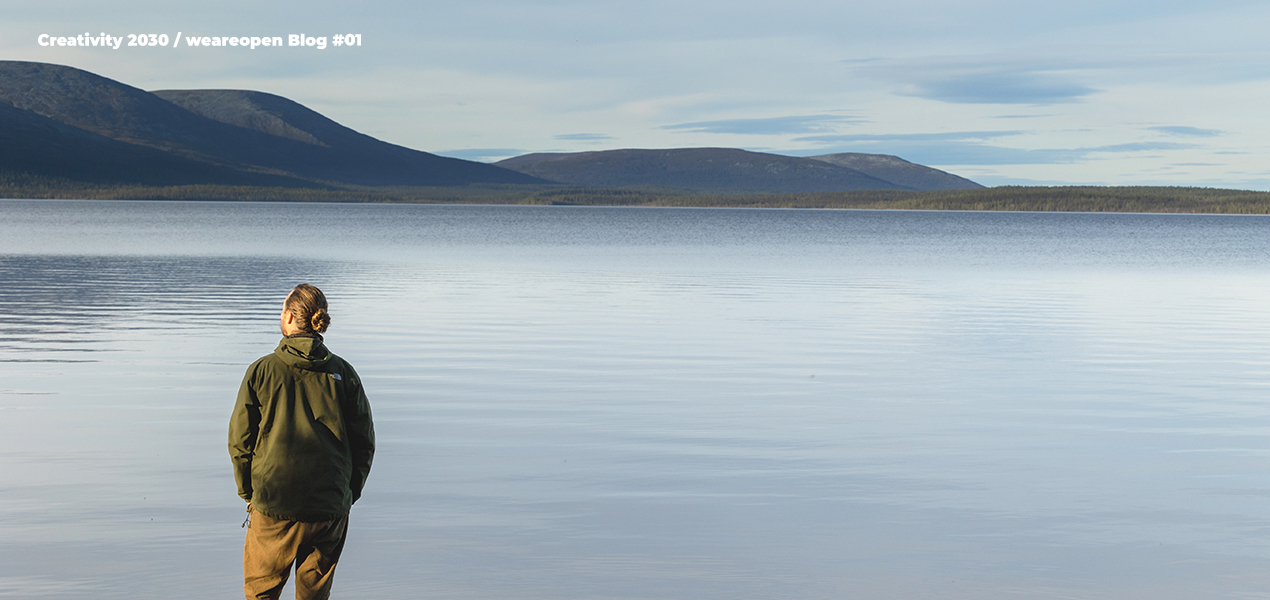"Profits should not come from creating the world’s problems, but from solving them.”
– Paul Polman, Unilever CEO 2009-19.
The business model we can’t afford anymore?
What happens when the stories we tell ourselves—as societies and businesses—are holding us back from meaningful change?
Blink, and you miss how we got here: 75% of youth under 25 globally say they are “very afraid” of the future, feeling betrayed by their governments. Two out of three American parents no longer believe their children will be better off than they were. Faith in business is just as fragile. Globally, only 40% of people under 40 believe companies can have any positive impact. Even CEOs aren’t convinced: 39% of US business leaders don’t believe their own sustainability efforts have any impact and call them “mostly a PR stunt.”
This is the real crisis businesses face: a crisis of credibility.
Companies are scrambling to be seen as part of the solution, but before they can rebuild trust externally, they need to overcome skepticism internally. The first step? Rewriting the deep story they’ve been telling themselves.
The story that’s holding us back
Sociologist Arlie Hochschild talks about the ‘deep story’—the narratives societies use to make sense of the world. The deep story that has dominated global business for the last century is the story of the consumer.
It’s a story that reduces companies to providers of products and services and people to buyers. It’s a story where competition and consumer choice define us—a world where companies succeed by creating demand, driving sales, and optimizing for quarterly growth. It has shaped everything from business culture to corporate strategy, so deeply ingrained that it’s hard to even imagine an alternative.
Yet we must.
Paul Polman, former Unilever CEO, puts it bluntly: “Companies can only safeguard their future by a radical shift in how they do business.” In Net Positive: How Courageous Companies Thrive by Giving More Than They Take, Polman challenges businesses to think beyond ESG goals and fundamentally rethink their role in the economy—moving from extraction to regeneration, from consumption to contribution.
Consumerism is no longer a viable operating system for business. The companies that cling to it—those that continue to treat people as consumers, extract natural and human resources as if they are infinite, and optimize purely for transactions—will not survive the coming decade.
From consumers to contributors: a business model for the (very near) future
We’re not saying companies should restructure themselves around a “Buy Nothing” button. What we’re saying is this: businesses excel at shaping behavior. They’ve spent the last century mastering the art of persuasion, influence, and shifting public perception. Now, the question is: can they use that same superpower to rethink the very stories that have shaped both their industries and the economy at large?
This shift isn’t hypothetical or wishful thinking—it’s already unfolding. Consumer behavior is moving away from passive consumption toward what we might call contributionism. A recent Harris Poll found that 40% of Americans are adjusting their spending habits to reflect their moral values, prioritizing brands that align with deeper societal and environmental action. Investors are following suit, moving beyond ESG checklists toward regenerative business models that create long-term value.
Businesses that want to thrive in the near future must stop seeing themselves as providers of products and start seeing themselves as contributors to a world that works better for all. Who even wants to be a consumer anymore? How much more empowering, how much more exciting, to see ourselves as being in the contribution business; as co-creators of the future, rather than passive participants in a spent, maxed out business model. This shift isn’t just a moral imperative—it’s a competitive advantage.
AI is already shaping the next deep story—but we can rewrite the ending
As businesses step into this shift, they face a choice: will they use AI to accelerate the transition from consumption to contribution, or will they let it reinforce the same old story?
Right now, most companies are using AI to automate consumption, not reimagine business. AI is optimizing ads, tracking purchases, personalizing content, refining supply chains—but all within the same outdated consumer-driven model. It’s accelerating the very systems we should be replacing. Yet, like any tool, AI is only as powerful as the intent behind it. What if AI could help us rewrite the very story of how businesses operate?
What if AI became more than a tool for optimization—what if it became a force for creativity and contribution? What if we used AI not just to sell more, but to create more—more sustainable solutions, more inclusive economies, more imaginative ways of doing business? The companies that realign AI with creativity instead of consumption—who use it to amplify contribution, not just efficiency—will define the next era of business impact.
The companies that lead this shift will not measure their success in quarterly gains alone, but in what they help build for the long term. They will not ask, “What can we afford?” but instead, “What can we no longer afford?” They will not see themselves as producers of goods and services—but as contributors to the common good. And in doing so, they will succeed beyond their wildest dreams. Because in the end, businesses won’t just succeed on what they sell—they’ll be defined by the story they choose to tell.
This post by We Are Open and more for Creativity 2030 initiative here; https://www.mrktng.fi/luovuus/

No Comments.